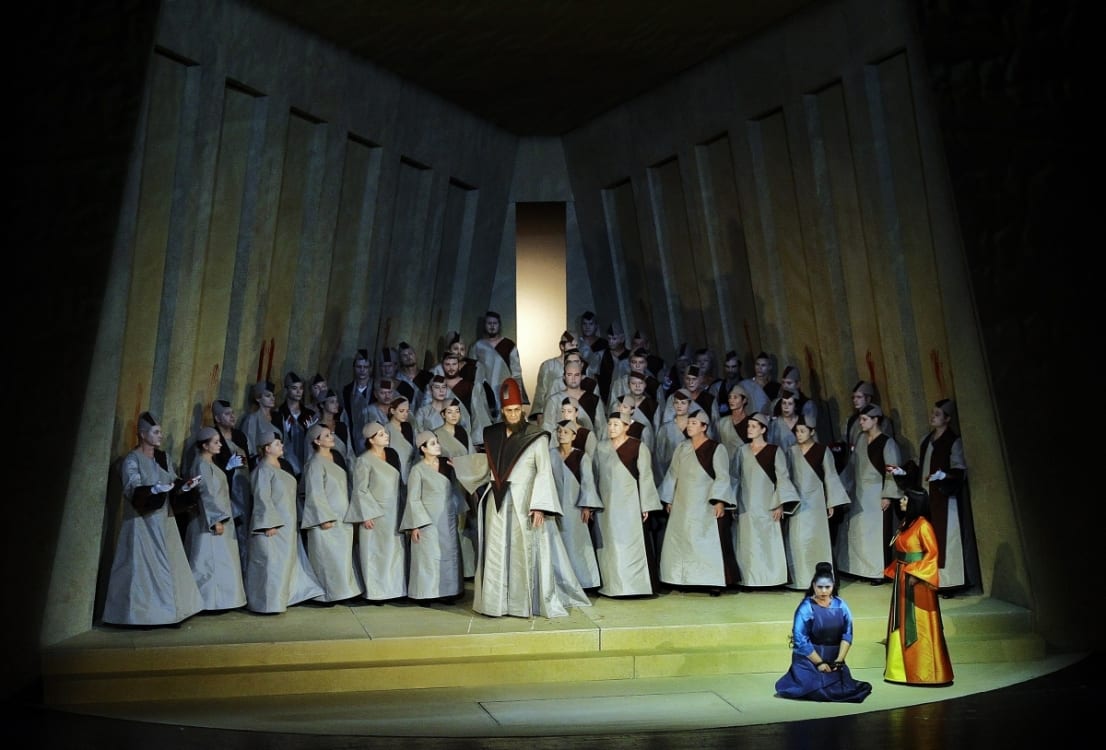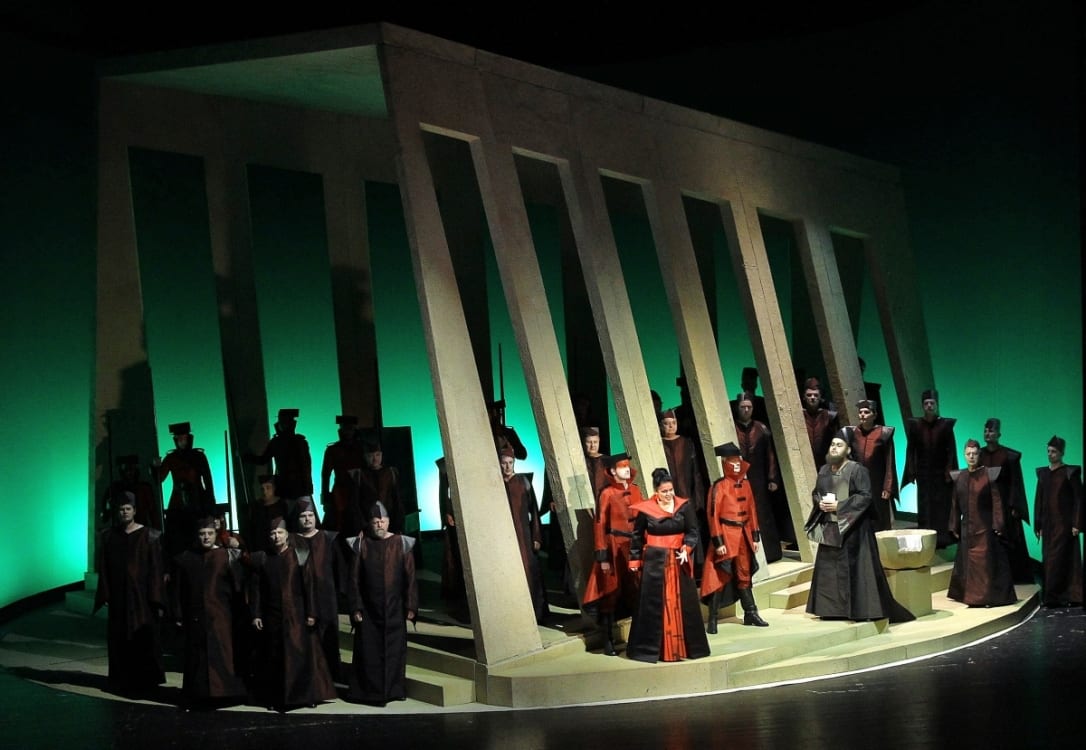Nabucco is Verdi’s third opera but first triumph. It propelled the young composer from desperation to elation. The plot consists of the essential ingredients that bolster a biblical story into an intriguing political drama. It is drawn from the Old Testament’s story of the Babylonian King Nebuchadnezzar (Nabucco) – the king that brought about the destruction of the first Jewish Temple in Jerusalem and exiled the Israelites to Babylon. Added to this Biblical narrative are the two fictitious characters, Abigail and Fenena. Abigail is the adopted daughter of a slave (in the original play she is the lovechild of one of the King’s wives and a slave). Both parents are executed and the child, Abigail, is saved and adopted by the king. Fenena is the King’s daughter and heir to the throne. The two women are in love with Ismaele, the nephew of the Israelite king. Ismaele is in love with Fenena, who converts and accepts the Jewish faith; Abigail, who is furious at being rejected by Ismaele, sets her eyes on her father’s throne and is determined to eliminate the Jews. Things don’t work out for the usurper, however. The grand dramatic narrative is all there, but directors, over the years, have taken different angles on the plot.
In the programme, the Argentinian tenor-turned-director, José Cura states that he reads the plot as the story of a formidable warrior who discovers he has failed as a father, and the journey into repentance of a young woman, Abigail, whose inferiority complex makes her a capricious and violent person. Unfortunately, there is little evidence of this on stage. There is neither dramatic tension nor theatrical excitement throughout the performance.
The trapezium set, designed by Cura, fits the confined space well at this theatre, creating an illusion of perspective and a sense of siege. The fresh approach to the libretto also manifests itself in the costume design, which does not reflect any period. Colours and simple lines inspired by the Russian artist Vasilij Kandinskij, fuse bright red, blue and magenta.

Miguelangelo Cavalcanti’s Nabucco is compatible with a defeated father and not with a regal figure. Anda-Louise Bogza’s Abigail is consistently powerful yet her portrayal of Abigail is of a calculating and sophisticated woman. Although her voice flattens at some points and there is little engagement with Ismaele to convince us that she is in love with him, she injects the performance with some of the dramatic tension it needs. It is possible that the crowded stage offers little opportunity to actually explore any acting skills. Roman Vocel’s Zachariáš is sturdy and towers over the other singers. Jana Sýkorová in the role of Fenena, and Josef Moravec’s Ismaele ignite some passion in the duet ‘Fenema O Mia Diletta’. The chorus is the hero in this production, where there is very little drama or interaction between characters – more ‘photo moments’; the music and the chorus compensate for the rest.
This is close to a competent production that lacks the dramatic force to drive it beyond the realms of the proscenium.

